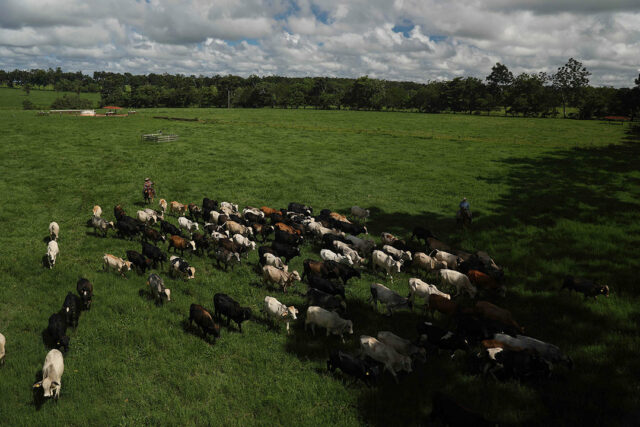Brazilian state launches mandatory tracking of cattle to stop deforestation around Amazon

SAO PAULO — Brazil’s Para state, which leads the country for the highest levels of Amazon rainforest destruction, will launch a mandatory program to track cattle in a bid to crack down on related deforestation, a partner in the project said.
Cattle pasture is the most common initial use for deforested areas in the Amazon and neighboring Cerrado savanna, a practice that faces strict legal limits but continues illegally in Brazil, the world’s biggest beef exporter.
The government of Para state in northern Brazil announced the program at the UN COP28 climate summit, according to The Nature Conservancy, a global conservation advocacy group working on the project.
The state government established the program in a decree published on Monday and sets the target of individual tracking of all 24 million cattle in Para by December 2026.
Cattle ranching in Brazil is linked to nearly 24% of global annual tropical deforestation and approximately 10% of total global greenhouse gas emissions, the conservancy said.
Para has Brazil’s second biggest cattle herd behind the west-central state of Mato Grosso, according to government data. The conservancy said the program will offer incentives for ranchers to join the traceability system to ensure compliance with the new law, without giving details on incentives.
“In a state larger than France, Spain, and Norway combined, with over 24 million cattle on more than 295,000 farms, the program brings a new approach to ensure continued reductions in deforestation and associated greenhouse gas emissions from cattle,” the conservancy said.
The program is part of a drive led by Para Governor Helder Barbalho to bolster the state’s green credentials ahead of hosting the COP30 climate change summit in 2025.
“The Para Cattle Integrity Program, announced at COP28, is a foundational layer for addressing the biggest driver of deforestation and emissions in Brazil,” said Jack Hurd, executive director of the Tropical Forest Alliance, an initiative that works with commodities firms to reduce deforestation.
“The absence of full traceability in Para undermined their ability to attract legitimate investment into this sector.” — Reuters



